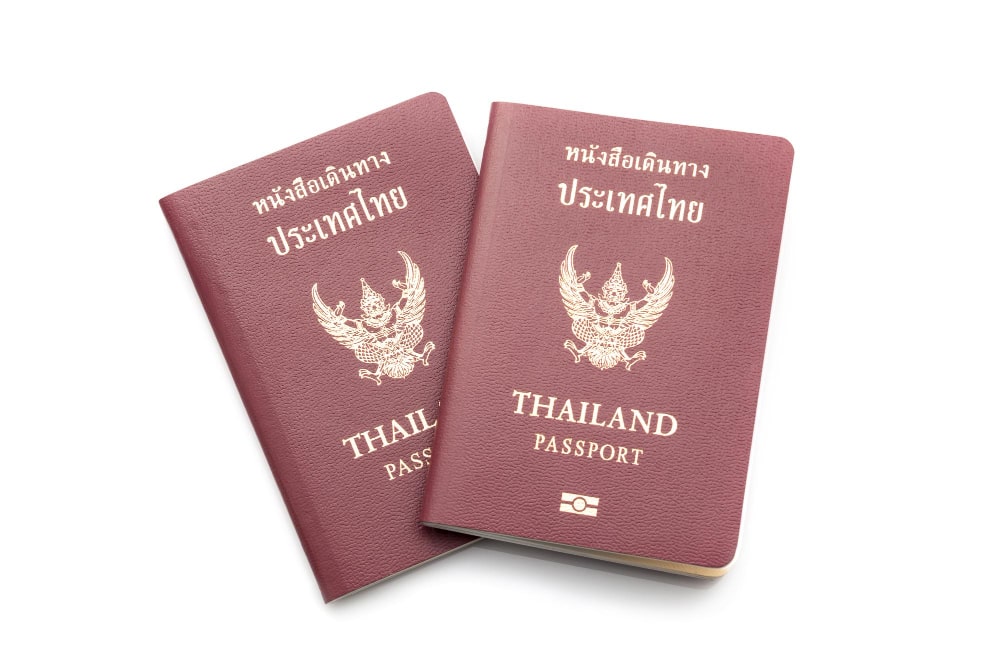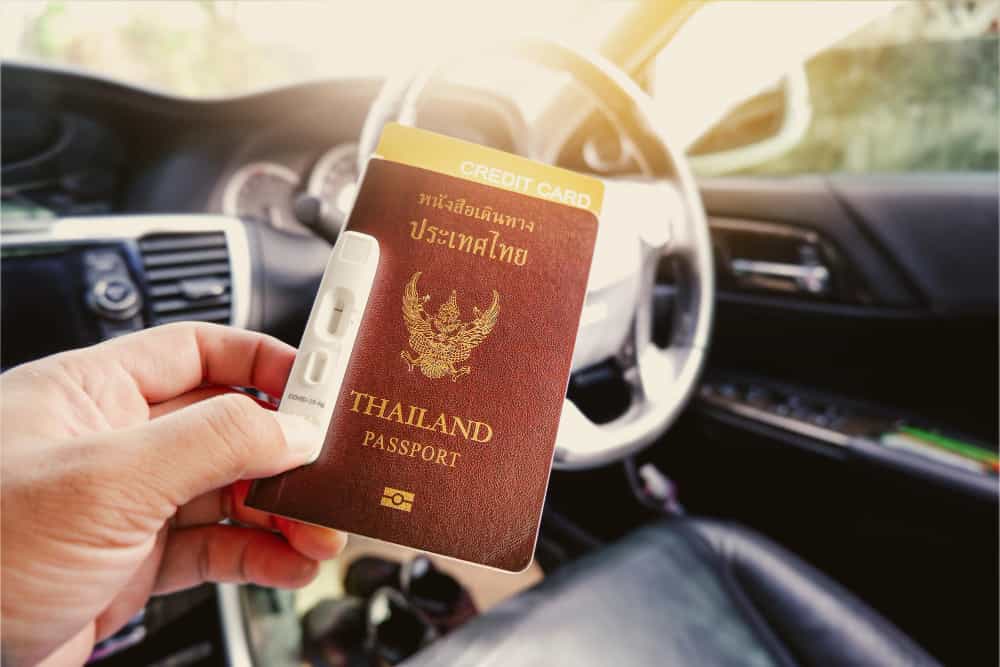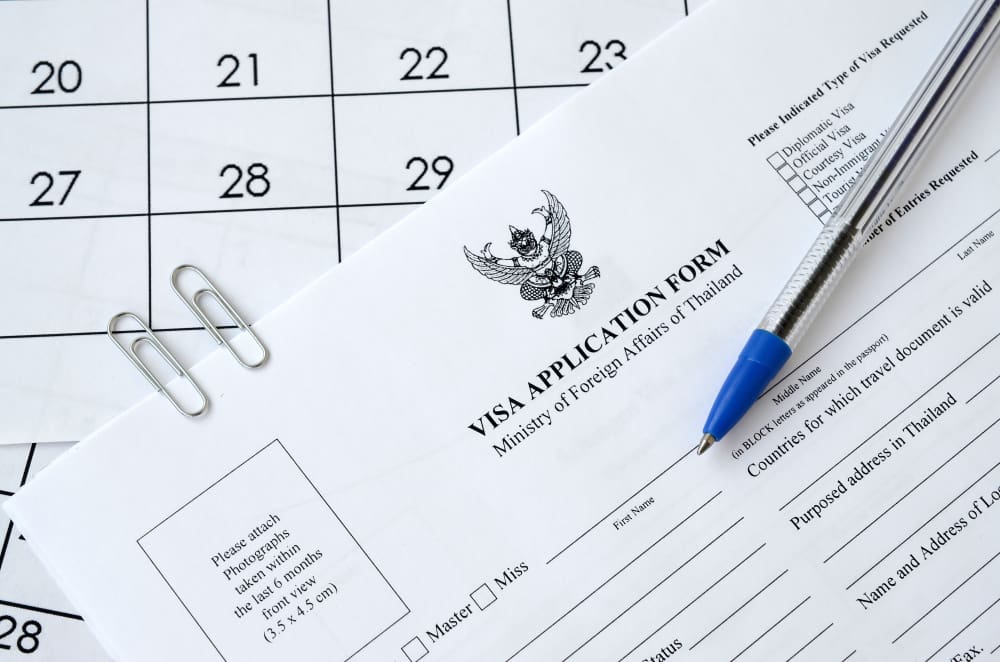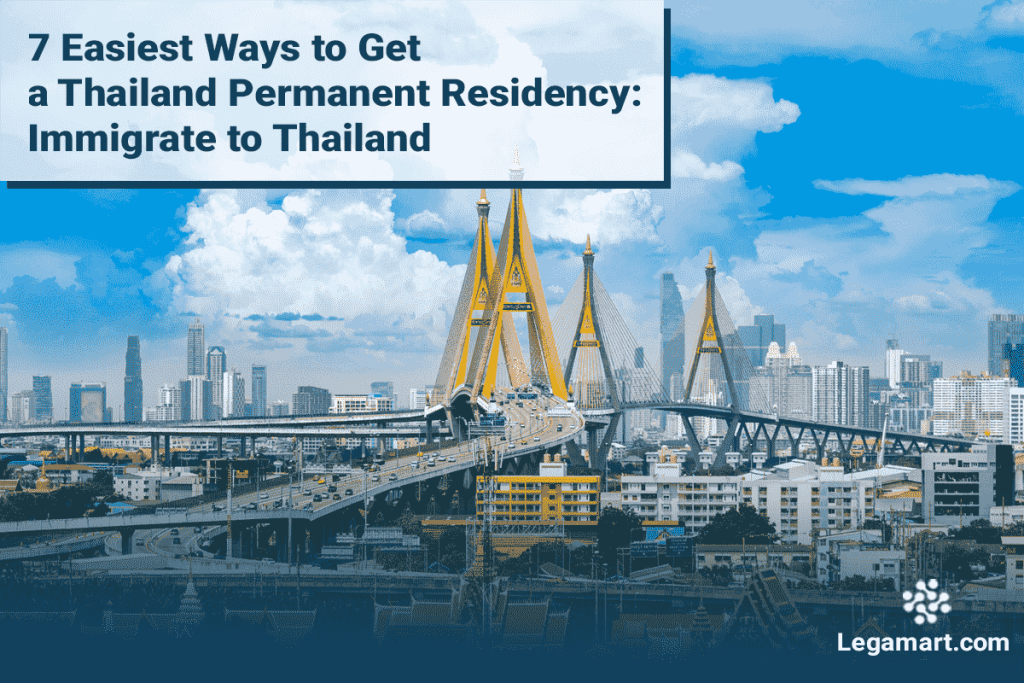Introduction
Oftentimes when people consider why they want to immigrate to Thailand, it brings to mind stunning white-sand beaches with enormous limestone structures or dense, verdant woods hiding big, ambling elephants. Ex-pats from all over the world are drawn to the nation by its diversified environment and exciting way of life to experience one of Southeast Asia’s most vibrant regions.
Best Ways to Immigrate from the US to UK
Thailand is one of the most popular tourist destinations in South East Asia and offers a modest yet practical standard of life, enticing many people to settle there permanently. We have therefore put together a one-stop guide on how to immigrate to Thailand and highlights ways to get Thai Permanent Residency.
Why Immigrate to Thailand?

Despite its uniform culture, the nation has an unusual array of communities and lifestyles. Bangkok, the country’s capital and largest city, is in the central Thailand. At the same time, other regions, such as the North, Northeast (known as Isaan), and South (near the Malaysian border), are very distinct from central Thailand and one another.
There are numerous ex-pat communities throughout the nation, and these communities encourage one another and newcomers through forums, meetings, and newsletters.
Thailand is a stunning country with some of the world’s most amazing beaches and reefs and 102 national parks, including 21 marine parks. Another reason to immigrate to Thailand.
Thailand is still a reasonably appropriate location to live, even though costs are rising, especially if the foreigner decides to adopt a Thai way of life. Thai cuisine is cheap, excellent, and well-known throughout the world. Housing costs are still reasonable, local transit is efficient and affordable, and local goods are affordable, making customers happy and more inclined to immigrate to Thailand.
Benefits of Immigrating to Thailand
The kind people of Thailand are well known for going above and beyond to accommodate guests.
The international hospitals in Thailand are of the highest standard. It can be a crucial factor to consider, especially for retirees. People travel to Thailand mainly for the country’s superior and economical healthcare.
There are many reasons to immigrate to Thailand and become a Permanent Resident (PR) in Thailand. It enables you to live continuously in Thailand without requesting a visa extension. You can also register your home in your name and purchase a condominium without an international bank transfer. Once you have PR status, it is also simpler to obtain a work permit.
In addition, one of the straightforward ways to get a Thai Permanent Residency is if you may qualify to apply for naturalization as a Thai citizen. For your non-Thai family members, you can also seek a visa extension and Permanent Resident status.
Ways to Get Thai Permanent Residency

Foreign nationals who immigrate to Thailand frequently apply for the following visas:
Non-Immigrant Visa “O-A” (Long Stay)
Most often, retirees over 50 who plan to stay in the country for at least a year without working apply for this visa. These types of visas are renewed on the anniversary of their expiration. Not having a criminal record and not having any life-threatening illnesses are prerequisites for eligibility (e.g., leprosy, tuberculosis, etc.). In addition to the standard papers (copies of a passport, etc.), candidates must also present income documentation. A bank statement displaying 800,000 THB or a monthly income of at least 65,000 THB can prove this.
Non-Immigrant Visa Type “B” (Business and Work)
This visa is for foreign nationals who intend to work in Thailand. This type of visa comes in several subcategories, including the Investment and Business visa Category “IB,” the Business visa Category “B,” the Business-Approved Category “B-A,” and the Teaching visa Category “B.”
Non-Immigrant Visa Category “B” (Business)
Applicants for the Business “B” visa require a letter of permission from the ministry of labor in addition to the standard documentation (copies of passports, pictures, application forms, etc.). Typically, the employer contributes to this procedure by submitting the necessary paperwork and copies of business records. The holder of this visa is permitted a 90-day stay in Thailand. After then, it may be extended for an additional year from the date of initial admission.
Non-Immigrant Visa Category “B-A” (Business Approved)

Those seeking a Business Approved “B-A” visa must rely on the affiliated business to submit their application. This visa entitles the holder to stay in Thailand for one year.
Foreigners who want to engage in investment projects overseen by the board of investment of Thailand are granted non-immigrant visas under the category “IB” (investment and business visas) (BOI). These include initiatives aimed at expanding Thai product exports, boosting employment rates for Thais, and fostering technology.
Non-Immigrant Visa Category “B” (Teaching)
This type of visa is for foreigners who want to work as teachers in Thailand’s lower-level educational institutions. A letter of acceptance from the Thai school where they will be working is required, in addition to letters of endorsement from government organizations like the office of the private education commission and the office of the basic education commission. Applicants must also provide documentation of their educational credentials, such as diplomas and teaching certificates.
Work Permits
Foreign nationals who want to work in Thailand must also obtain a work permit from the ministry of labor’s office of foreign workers administration, department of employment. The government will expect income tax from everybody who works in Thailand. It might be the most convenient of all ways to get Thai Permanent Residency.
Family visa
Foreign nationals employed in Thailand may apply for a non-Immigrant Visa Category “O” that allows them to stay for up to one year.
The Office of the Immigration Bureau Office is where foreign nationals who currently have a Transit Visa or a Tourist Visa and decide they wish to work in Thailand can apply for a change of visa type. The immigration officer has the power to alter the visa and extend the stay. You can visit the immigration bureau website to get a head start on your application. While perusing this article, one should keep in mind that the process to immigrate to Thailand is relatively straightforward.
Steps Required to Immigrate to Thailand

The Royal Thai immigration commission handles the processing of all applications for Thai permanent residency. A maximum of 100 people from each nation may be granted permanent residency in Thailand yearly. The application period for Thai PR usually runs from October to December.
You must satisfy the following requirements to apply to become a Thai permanent resident:
Before submitting your application:
– You must have held a Thai non-immigrant visa for at least three years.
– Multiple Non-Immigrant visa holders are not eligible to apply.
– To be eligible, you must have three successive yearly extensions.
– At the time of applying, you must have a non-immigrant visa.
– To apply for permanent resident status in Thailand, you must fall under one of the following categories:
a. Investment class (minimum 3 – 10 Mil. THB investment in Thailand)
b. Business/Work category (As also covered in the article earlier)
– For family support or humanitarian causes to qualify for this category, you must be married to, parent of, or the guardian of a Thai child under the age of 20 who is a Thai citizen with a valid residency permit.
– Academic/expert category
You should be aware that the list of documents needed for the application varies depending on the category for which it is submitted.
A resident blue book is given to you once your application for Thai permanent residency has been accepted. The next step is to obtain a home card and register your place of residence in Thailand with the neighborhood Amphur. You can then apply for an alien book (red book), the equivalent of the Thai national ID card, at the neighborhood police station one week after receiving your residence certificate. Every year, you need to re-register there.
Unless it is withdrawn, the residency permit itself never expires. However, to be able to leave the nation and return to Thailand, you must apply for a re-entry permit (endorsement). Following ten years of continuous Permanent Resident status in Thailand, you are eligible to apply to naturalize as a Thai citizen.
Conclusion
With cutting-edge urban metropolises, regal coastal resorts and miles of beaches, picture-perfect islands, lush mountains, lush countryside, and incredible national parks, Thailand truly has something for everyone.
Any prudent person would ask themselves questions along the lines of “How to immigrate to Thailand,” “Ways to get Thai Permanent Residency,” or” How do I bring parents along while immigrating?” Before seeking answers to these questions, remember that immigrants can live a life of cheap luxury and take advantage of everything the modern world offers, or they can enjoy country living if they choose. Your options are wide open in this situation. Thus, ways to get a Thai permanent residency are uncomplicated, and if one genuinely wishes to immigrate to Thailand, the same can be done at not-so-ponderous costs.
Between USD 1,800 and 2,300 per month, a couple can live pretty nicely in various parts of the nation. The more into the provinces one travels, the lower one’s cost of living becomes, which will appeal to those who want to relocate to smaller communities.
No matter how big or small your pocketbook may be, you may eat well because of the accessibility and affordability of Thai food. Every city, town, and hamlet offers excellent street food, so you hardly ever have to travel far to find a delicious meal.
Thailand’s sophisticated medical and dental tourism sector attracts a lot of foreign retirees. Tourists visit the nation every year to have a variety of procedures, from hip replacements and cosmetic improvements to laser eye surgery and root canals, for a fraction of the price they would pay at home. A wide range of procedures, drugs, and surgeries are competitively priced.
If you are looking for an immigration lawyer, want to make Thailand your home, or bring your loved ones to Thailand, it’s of the utmost importance that you’ve expert advice for your visa and those of your family members. You can get expert legal advice from top immigration lawyers as per your requirements and needs via your mobile device by visiting our website and accessing our LegaMart directory.




